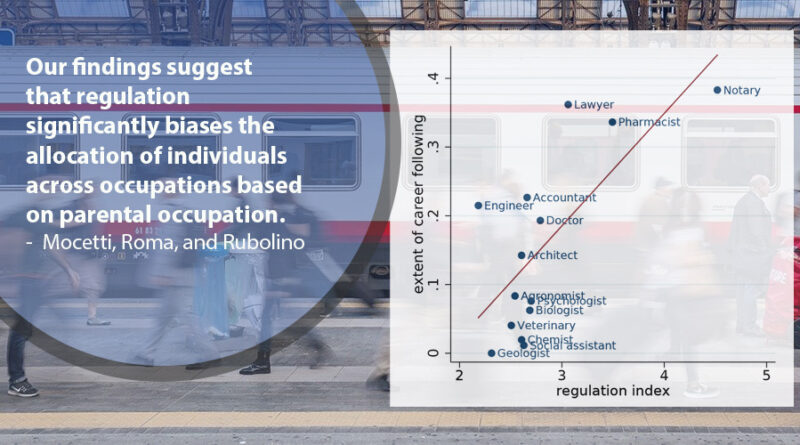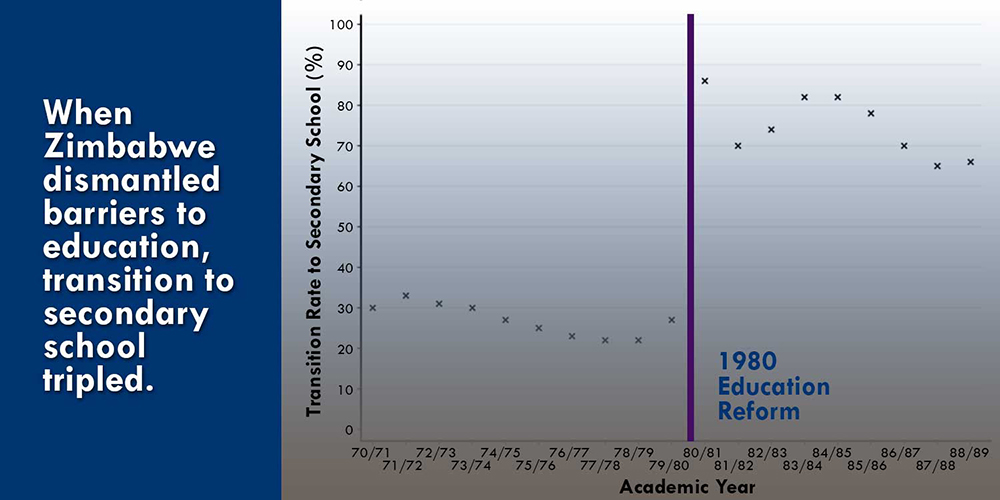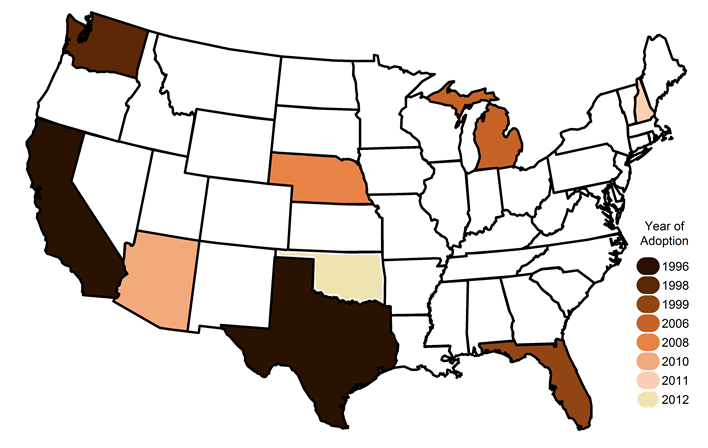If You Want Intergenerational Mobility, Regulation Matters
It is not uncommon that children follow the same career as their parents. But why? This might be attributed to genetic transmission of characteristics, family culture, and other monetary and nonmonetary investments that shape skills, aptitudes, beliefs, and behaviors. If we want a more equal access to professions, it is difficult to intervene on such elements, but we can act on a relevant factor that is often disregarded: regulation.
Regulation shapes intergenerational occupational persistence in different ways, such as via the privileged access of professionals’ children, or the easy transfer of a portfolio of clients. Sauro Mocetti, Giacomo Roma, and Enrico Rubolino studied how regulation changes affected the decision to follow your parents into a career.
In Italy, two waves of liberalization of regulation loosened the limitations on the access to regulated occupations and the conduct of professionals. After these reforms, it was easier for professionals, for example, to advertise their activity or to compete on prices. The researchers found that, as a consequence, it was also easier for someone whose parents were not in a profession to enter into it. This impact was stronger in the soft sciences (e.g., lawyers, accountants, etc.) and in areas where the demand of professional services was higher.
This led the team to question the rationale of regulation. If it is true that regulation is necessary to avoid asymmetric information, excessive regulation may hinder competition. These findings suggest regulation biases the allocation of individuals across occupations, favoring family background instead of individual merit. Thus, a more comprehensive cost–benefit analysis, which should include some evidence on the quality of the services that are provided, is crucial when this kind of regulation is adopted—doing so can also improve the equity of access to careers.
Read the study in the Journal of Human Resources: “Knocking on Parents’ Doors: Regulation and Intergenerational Mobility,” by Sauro Mocetti, Giacomo Roma, and Enrico Rubolino.
***
Sauro Mocetti (@SauroMocetti) and Giacomo Roma (@giacrom) are at Bank of Italy. Enrico Rubolino (@enrico_rubolino) is at University of Lausanne.



